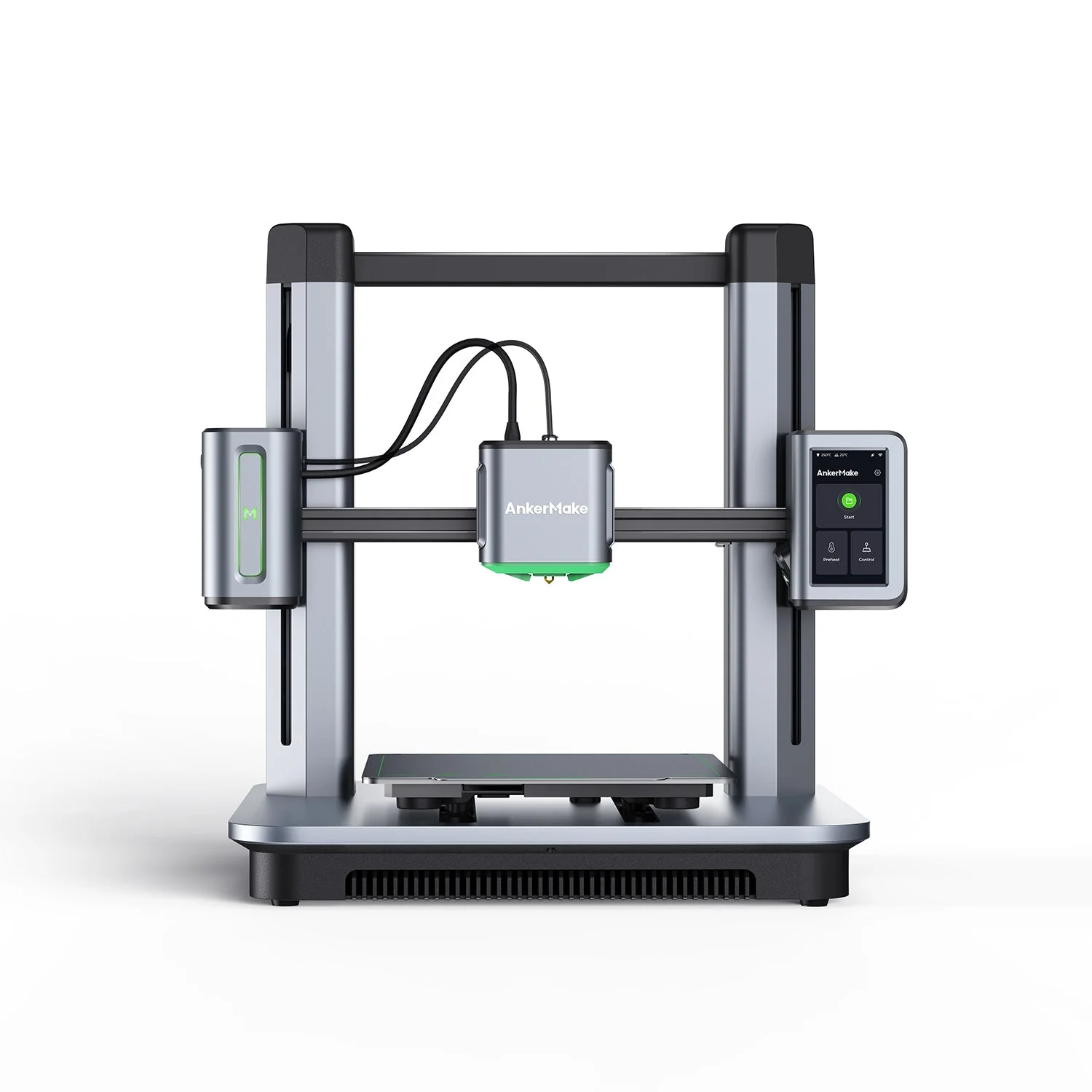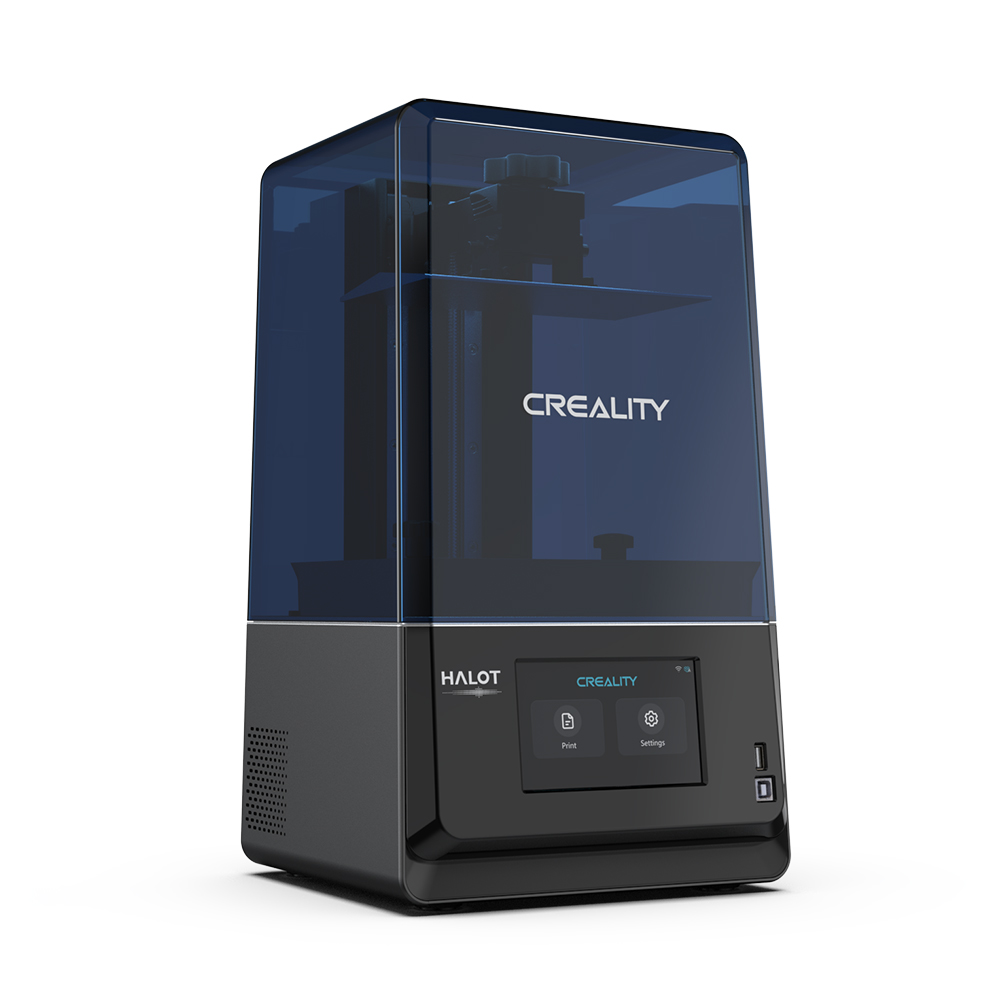Compare M5 vs Halot One Plus
Comparison between the best 3D printers
Choose the best 3D printer at the best price. The cheapest 3D printers are here.
Buy a 3D printer here with 3D Fila.
 |
 |
|
| Model | M5 |
Halot One Plus[BUY Halot One Plus] |
| Printing Material | Filament | Resin |
| Buy Filament for AnkerMake M5 | Buy Resin forCreality 3D Halot One Plus | |
| Estimated price | $497,00 | $399,00 |
| Manufacturer | AnkerMake | Creality 3D |
| Release Year | 2023 | 2022 |
| Print Volume [mm] | 235x235x250 | 102x172x160 |
| Printer Size [mm] | 502x438x470 | 236x245x416 |
| Weight [kg] | 12,6 | 6,8 |
| Power Loss Recovery | YES | NO |
| Maximum Resolution [mm] | 0,1 | |
| Processor | ||
| Display | Touchscreen 4,3'' | |
| Power Supply | 350 W | |
| Connectivity | Wi-Fi, USB-C, OTA Upgrade | USB / Wi-Fi |
| Operating systems | Windows, Linux, Macbook | |
| Date of registration in the system | 2024-07-08 | 2022-10-11 |
| Release date | 2023 | 2022 |
| Extra features | The AnkerMake M5 printer stands out for its impressive print speed, reaching up to 500mm/s. It features AI print monitoring, an integrated camera for creating timelapses, auto-leveling bed with pressure sensor, direct extruder, flexible PEI-coated build plate, and Wi-Fi and USB-C connectivity. Assembly is quick and easy, and the printer is designed to deliver high print quality and ease of use. | Crealitys Halot-One Plus printer stands out for its 4K+ resolution that delivers sharp details and consistent surfaces. It features a fast and responsive 5-inch LCD interface, as well as easy-to-use Halot Box software. It offers Wi-Fi connectivity and remote print monitoring, as well as an integrated air filtration unit, a rare feature in this price range. The Halot-One Plus is designed for the prosumer market, combining high quality with advanced features such as Wi-Fi and air filtration. During testing, it stood out for implementing these features at an affordable cost, while maintaining functionality. It features an attractive design with a UV-resistant blue cover and a robust dual rail system for the Z-axis, ensuring smooth and consistent movements. The large LCD and high resolution of the LCD mask (4320 x 2560) are other strong points, allowing for fine details and textures in prints. |
| Support for multiple colors and materials (AMS and CFS) | NO | NO |
Notes * |
||
| Cost-benefit | 7 / 10 | 8 / 10 |
| Hardware | 3.5 / 10 | 1.2 / 10 |
| Tela | . | . |
| Print volume | 3 / 10 | 3 / 10 |
| Performance | 4 / 10 | 9 / 10 |
| [BUY Halot One Plus] |
Conclusion |
| In comparing the AnkerMake M5 and the Creality 3D Halot One Plus, both 3D printers present compelling options with distinct advantages based on varying user needs and priorities. The AnkerMake M5, priced slightly higher, offers a more significant print volume and impressive features such as rapid print speeds, AI monitoring, and a user-friendly touchscreen interface. Its power loss recovery feature adds an extra layer of reliability, making it suitable for users who prioritize speed and ease of use in a multi-purpose printing environment. Additionally, the M5's solid build and quality components indicate a robust design intended for high-performance tasks, supporting a productive workflow. Conversely, the Halot One Plus, while having a smaller print volume, excels in delivering exceptional detail thanks to its 4K+ resolution. This makes it particularly appealing for users focused on high-quality outputs and fine details. The integration of air filtration is a unique advantage, enhancing safety and cleanliness during the printing process. Despite being a year older, the Halot One Plus shows a keen understanding of the prosumer market, offering a good balance of quality and advanced features at a more accessible price point. In summary, the choice between these two models ultimately depends on specific printing needs—whether one prioritizes higher speeds and larger volume with the AnkerMake M5 or seeks high-resolution precision and unique features in the Creality 3D Halot One Plus. Both printers are solid contenders, boasting good cost-benefit ratios and advanced capabilities that cater to different facets of the 3D printing landscape. |

